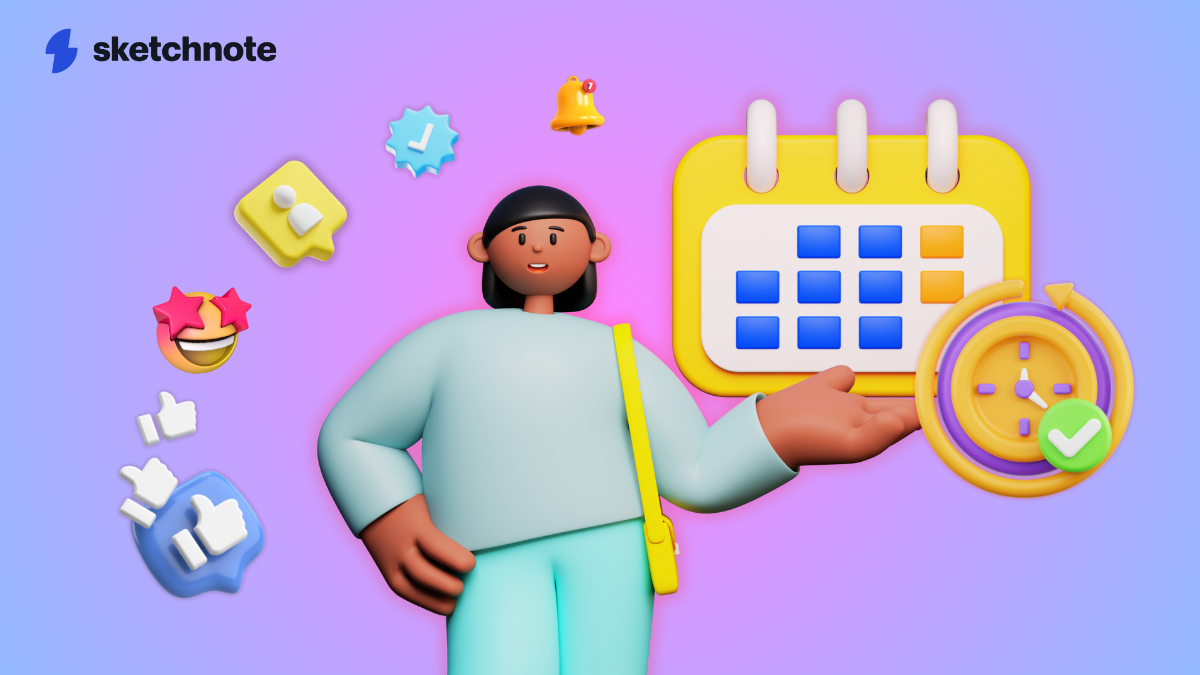In today’s fast-paced world, managing social media effectively is essential for engaging your audience across platforms. Juggling multiple accounts can be overwhelming, making a reliable social media scheduler a valuable tool. But with so many options available, how do you find the right one for your business? This guide will walk you through key considerations to help you choose the best scheduler to support and enhance your social media strategy. Let’s dive right in!
Understanding Social Media Scheduling
To effectively manage today’s social media environment, it's crucial to understand social media scheduling. This approach involves planning and organizing your posts across key platforms like LinkedIn, Facebook, Instagram, TikTok, and X, helping you maintain a consistent presence while freeing up time for other business priorities. With strategic scheduling, you can boost your reach, improve engagement, and enhance overall performance across these channels.
What is a Social Media Scheduler?
Before exploring the key factors to consider when choosing a social media scheduler for your team, let’s clarify what these tools do. Social media scheduling tools are applications designed to automate and simplify the posting process across platforms. They allow you to pre-plan content, choose optimal posting times, and analyze engagement metrics to refine your strategies. By using a scheduler, your agency can streamline content management, keeping your brand active and relevant in today’s competitive landscape.
Evolution of Social Media Management Tools
As the demands of social media management have expanded, scheduling tools have evolved to meet them. What once was focused on basic content publishing has transformed into powerful platforms that now include comprehensive analytics, audience targeting, and multi-platform integration. This evolution means businesses like yours can not only maintain a consistent posting schedule but also adapt and enhance your strategies with real-time insights.
Understanding how these tools have grown over time reveals their increasing capabilities. Social media schedulers have shifted from simple post-planning to advanced features, such as A/B testing, audience segmentation, and even AI-driven content recommendations. By leveraging these advancements, your agency can optimize your brand’s social media presence and make well-informed decisions that align with your client’s business goals.
Importance of Social Media in Business Strategy
The role of social media in your business strategy cannot be overstated. As digital engagement continues to rise, leveraging social media as a marketing tool is an essential part of modern business practices. By integrating social media into your strategy, you can enhance brand visibility, foster customer relationships, and drive sales efficiently across multiple platforms.
For example, a brand like Nike has effectively used social media to strengthen its identity and connect with a global audience. Through platforms like Instagram and TikTok, Nike shares inspiring stories, user-generated content, and targeted ads that resonate with its core audience. This strategic use of social media has allowed Nike to engage directly with customers, gather real-time feedback, and create campaigns that are relevant and impactful.
Understanding the importance of social media allows you to stay ahead in an increasingly competitive marketplace. By utilizing these platforms strategically, you can tap into vast audiences, collect valuable feedback, and adapt your messaging in real time. Embracing social media as a vital component of your business strategy will empower you to build lasting connections with your audience and maximize your growth potential.
Why Use a Social Media Scheduler?
Now, as social media continues to grow in importance for businesses, effectively managing your presence across various platforms can be overwhelming. A social media scheduler simplifies this process by allowing you to plan, create, and automate your posts in advance, freeing up your time for other strategic activities. This way, you can maintain a consistent presence that resonates with your audience without the constant pressure of real-time posting.
Key Benefits of Social Media Scheduling
Before plunging into the features of various tools, it’s necessary to understand the key benefits of social media scheduling. By automating your content calendar, you enhance organization, improve efficiency, and ensure timely posts. This structured approach helps you stay on top of trends and engage with your audience consistently, which can significantly contribute to your overall marketing strategy.
Impact of Regular Posting on Engagement Rates
Rates of engagement can dramatically increase with regular posting, as consistency helps to maintain visibility and keep your audience engaged. When you post on a predictable schedule, your followers come to anticipate your content, fostering a sense of connection and loyalty. This heightened engagement can lead to higher interaction rates, increased shares, and ultimately, greater brand awareness.
Improved engagement rates are not just about quantity; they stem from building meaningful relationships with your audience through regular interaction. Brands that post frequently and with a clear strategy can experience significantly higher engagement—often up to 50% more than those without a consistent plan. This consistency not only keeps your brand top-of-mind but also encourages followers to participate actively in discussions, further enhancing your online presence.
Centralized Control Across Multiple Platforms
Social media schedulers offer centralized control over multiple platforms, allowing you to manage all your accounts from a single dashboard. This functionality saves you time, provides a clear overview of your content strategy, and ensures consistent messaging across channels—crucial for building a cohesive brand image. For instance, with Sketchnote's Social Media Planner, you can view all your scheduled posts across LinkedIn, Facebook, Instagram, and X on one calendar for each client.
Using a social media scheduler streamlines your efforts across various platforms. By consolidating your strategy, you eliminate the need to log into each account individually, reducing the likelihood of errors and ensuring a unified brand voice. This not only enhances your strategic approach but also contributes to a more professional and polished online presence. By managing all your accounts in one place, you can further streamline your efforts and ensure a consistent brand presence.
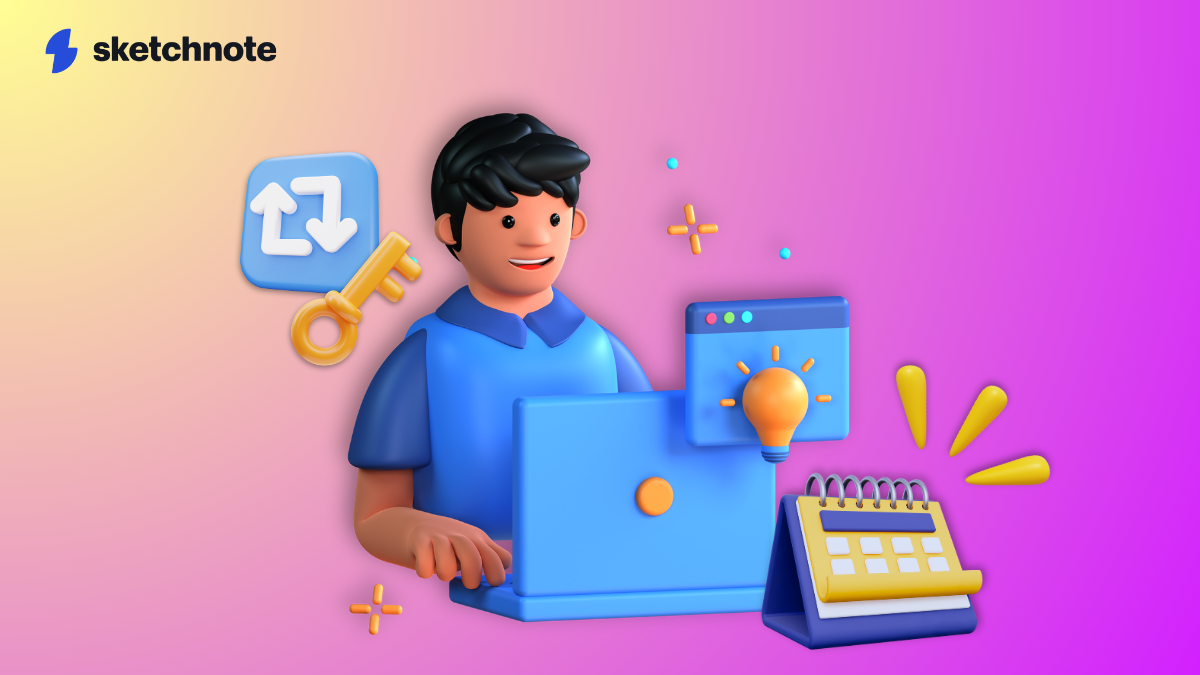
Key Features to Consider in a Social Media Scheduler
While centralizing your social media management offers significant advantages, choosing the right scheduler requires a thorough understanding of its key functionalities. After consulting with hundreds of agencies, we recommend focusing on the following essential features when selecting a scheduling application for your agency:
- Customizable Scheduling Options
- Multi-Platform Support
- User-Friendly Interface
- Analytics and Reporting Capabilities
- Content Management and Curation Tools
- Collaboration Features for Teams
- Integration with Other Marketing Tools
These criteria will guide you in evaluating which tool best meets your team’s needs. Let’s delve into each of these features in detail.
User-Friendly Interface and Design
A user-friendly interface is essential for ensuring a smooth experience, enabling you to focus on executing your social media strategy rather than navigating complex tools. When evaluating scheduling platforms, prioritize those with clean layouts, drag-and-drop features, and intuitive menus. These design elements can significantly streamline your scheduling tasks, allowing you to manage your content efficiently and effectively. A well-designed interface not only enhances usability but also contributes to a more productive workflow.
Content Management System
Scheduling content effectively requires a solid content management system. This feature allows you to organize, store, and curate your social media content in one place. You should look for options that facilitate easy editing, tagging, and categorization of your posts.
Understanding how the content management system works will help you maintain a consistent brand voice and message across all platforms. A system with search functionality can also save you time when you need to retrieve specific content quickly.
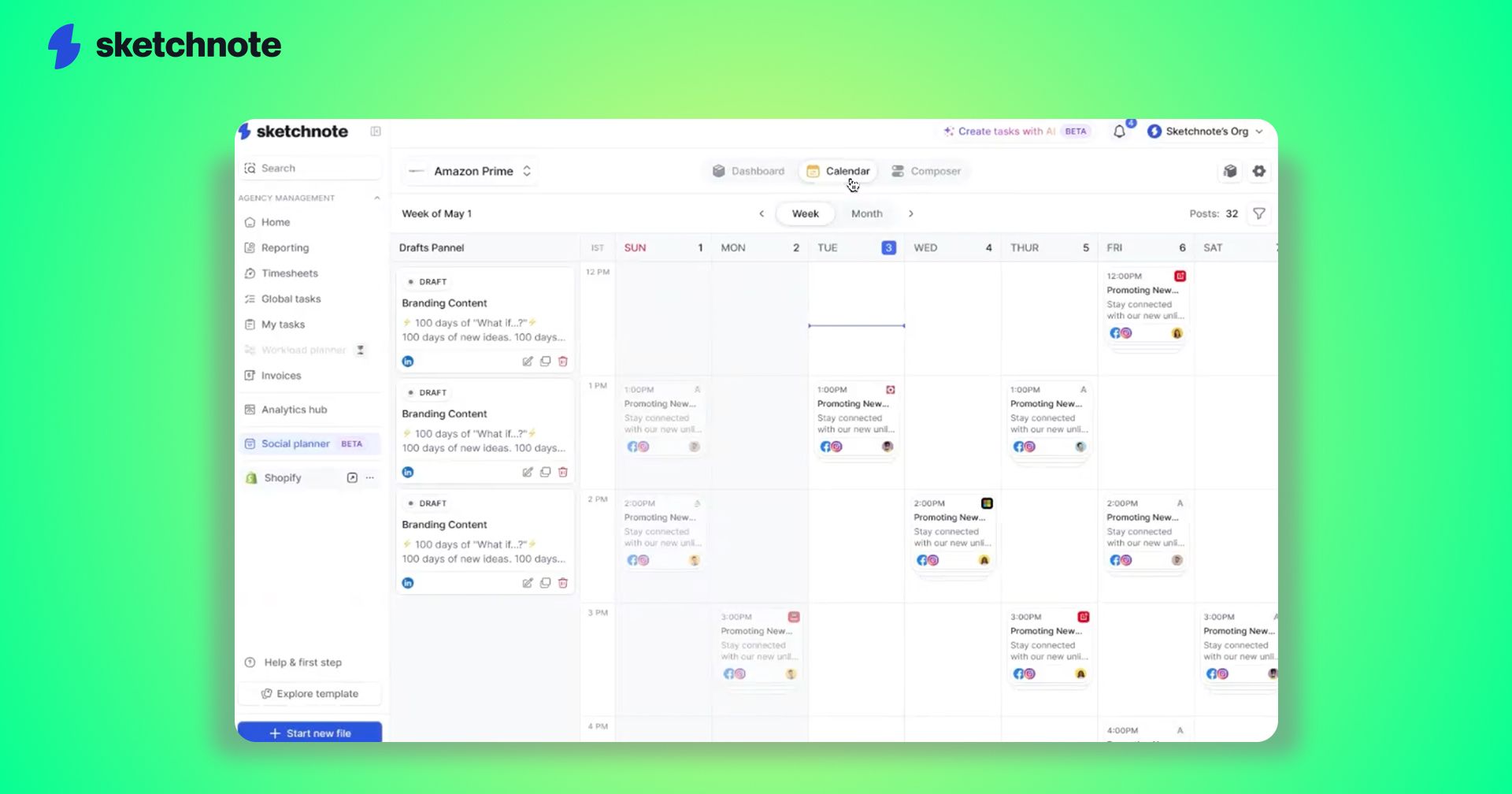
Scheduling and Automation Capabilities
When selecting a social media scheduler, it's essential to prioritize its ability to automate your posting process. The capability to schedule posts in advance not only saves you valuable time but also helps maintain a consistent online presence. With a well-structured content calendar, you can efficiently plan campaigns and manage your posting schedule, ensuring that your brand stays active and engaged with your audience.
With tools like Sketchnote, you can seamlessly schedule posts for your agency's clients across LinkedIn, Facebook, Instagram, and X—all from a single calendar. This centralized approach allows for streamlined management of multiple accounts, ensuring your content is published on time while keeping your messaging cohesive.
Robust automation features significantly enhance your workflow, enabling you to focus on other aspects of your business while your social media content is automatically published. By leveraging these scheduling tools, you can strengthen your overall social media strategy and ensure your messaging reaches your audience at the right moments.
Collaboration Tools for Team Efficiency
Automation tools can significantly enhance collaboration within your team. Many social media schedulers offer features that allow multiple users to access, edit, and review content calendars collectively.
Tools that promote efficiency among team members, such as real-time collaboration, comment sections, and approval workflows, can streamline communication and align everyone with the business goals. This fosters a more productive working environment and enhances your social media efforts.
Analytics and Reporting Features
For effective decision-making, robust analytics and reporting features are essential. They provide insights into post performance, audience engagement, and overall campaign efficacy, helping you tailor your strategies accordingly.
Automation of reporting functions can simplify your analysis process, allowing you to generate customized reports without manual input. On Sketchnote, the Dashboard view for each client not only summarizes performance but also offers a detailed look at individual posts, including metrics such as likes, shares, and saves. These insights enable you to refine your social media strategy based on real-time data, driving better results for your business.
How to Evaluate Cost vs. Value
Despite the diverse pricing options for social media schedulers, determining the right fit for your business requires careful consideration of both cost and value. As you navigate various platforms, assess how each tool's features align with your specific needs. This involves weighing the benefits against the financial commitment to ensure your investment effectively supports your overall social media strategy.
Subscription Plans and Pricing Structures
Cost is a key factor in selecting a social media scheduler, with pricing structures ranging from free plans with basic functionalities to premium subscriptions offering advanced analytics and automation. Evaluate which features are crucial for your business; choosing a plan that meets your requirements can enhance your social media experience without overspending.
Understanding ROI on Paid vs. Free Plans
Evaluate the return on investment (ROI) by comparing the features of paid plans to free options. While free tools may seem appealing initially, their limited capabilities can hinder your social media effectiveness, impacting your overall growth and engagement metrics.
Understanding the ROI involves analyzing the additional benefits of paid plans, such as in-depth analytics, customer support, and advanced scheduling options. These features can significantly enhance your ability to reach and engage your target audience meaningfully, ultimately leading to higher conversion rates. Investing in a more robust tool could pay off with increased brand visibility and customer interactions.
Importance of Trials and Exploration
One of the best strategies for choosing a social media scheduler is taking advantage of free trials and exploring different platforms. Many tools offer trial periods that allow you to test features firsthand, helping you assess how well they cater to your business needs before committing financially.
A thorough exploration of social media schedulers through trial offers equips you to make a more informed decision. By experimenting with various tools, you can identify which platform aligns best with your objectives, saving you time and resources in the long run. For instance, you can explore the Sketchnote platform, including its Social Media Planner, completely free for seven days, allowing you to discover features that enhance your social media management without any upfront investment.
Understanding Your Business Needs and Goals
Recognizing the pivotal role social media plays in today’s digital landscape, it’s imperative to understand your unique business needs and goals. Each organization operates with distinct targets, whether increasing brand awareness, driving website traffic, or boosting sales. Knowing what you aim to achieve will help you choose a social media scheduler that aligns with your objectives, making it easier to manage multiple platforms effectively.
Defining Specific Objectives for Social Media
Consider key objectives when using social media for your business, such as engaging your audience, increasing post reach, promoting new products, enhancing customer service, or driving traffic to your website. Establishing these clear goals will not only guide your content strategy but also inform your choice of scheduling tools.
Mapping Tool Features to Business Needs
Your objectives should guide your exploration of various tools, focusing on features that meet your specific needs, such as analytics, scheduling flexibility, and team collaboration capabilities. Assess which functionalities will best support your marketing strategies while allowing efficient management of your social media presence.
This means examining how each social media scheduling tool corresponds with your requirements. For example, if your priority is driving engagement, look for tools that provide comprehensive analytics to monitor performance. If your goal involves increased team collaboration, seek tools with multi-user access and content approval systems. Ultimately, aligning tool features with your goals can significantly enhance your social media strategy.
Analyzing Case Studies for Informed Decisions
Your objectives can be informed by examining real-world case studies that highlight the effectiveness of particular tools for various business models. These insights offer a clearer picture of what to expect. Consider the following examples:
- Company A: Increased engagement by 40% after implementing Buffer for scheduled campaigns across three platforms.
- Company B: Achieved a 25% boost in website traffic through strategic post-timing using Hootsuite's scheduling features.
- Company C: Grew their social media following by 50% in six months after switching to Sprout Social for its robust analytics.
Needs evolve, and understanding trends from case studies helps you make informed decisions about the social media scheduler that fits your business model effectively. By analyzing data-driven results from similar organizations, you will be better prepared to select a tool that aligns with your specific objectives and enhances your social media management efforts.
User Feedback and Reviews Compilation
Compiling user feedback is vital for assessing how well a tool performs in real-world situations. Hearing from others who have navigated similar choices gives you valuable insights into the pros and cons of each platform.
The diverse experiences shared by users can provide a balanced view of social media scheduling tools. Categories such as user-friendliness, customer support, and performance can highlight which tool might resonate more with you and your business needs.
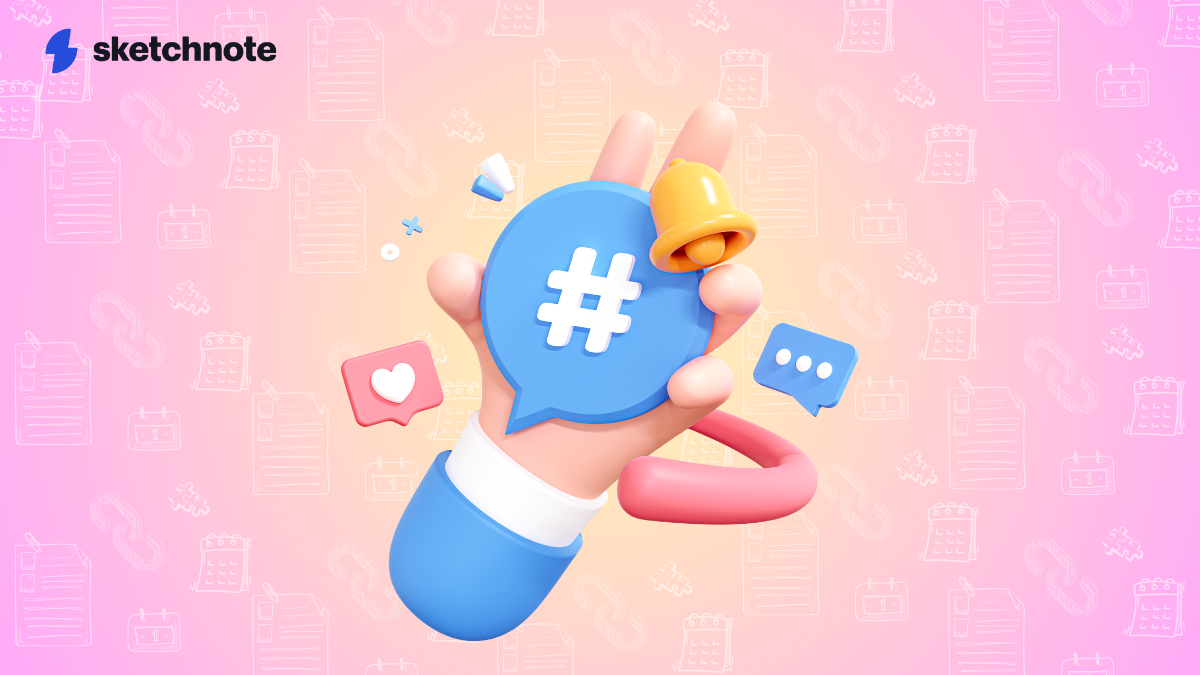
Additional Tips for Choosing a Social Media Scheduler
Selecting the right social media scheduler involves considering various factors that can significantly influence your decision. Here are some tips to guide you:
- Assess the range of features offered.
- Evaluate the available pricing models.
- Check for compatibility with your existing tools.
- Explore any automation options provided.
Additionally, take the time to ensure these aspects align with your business objectives to make a well-informed choice.
Evaluating Customer Support Options
When selecting a social media scheduler, robust customer support can make a significant difference, especially when potential issues arise. Investigate the support channels available, such as live chat, email, and phone assistance.
Additionally, check if the service offers a knowledge base or community forum for self-help. Prioritize tools known for their responsive and helpful customer service, as your social media operations will thrive with reliable support. With Sketchnote, you can also drop your queries to our dedicated customer success team via WhatsApp, and we'll work to resolve your questions or provide clarifications as a priority.
Importance of User Reviews and Testimonials
At the heart of informed decision-making are the experiences shared by other users. Diving into reviews and testimonials reveals insights about usability, features, and overall satisfaction with the tool. Exploring various platforms for reviews can give you a comprehensive view of what to expect.
Due to the subjective nature of user experiences, reviews can highlight both strengths and weaknesses that a company may not fully disclose. They provide real-world examples of how the scheduler performs in various scenarios, guiding you in understanding its effectiveness in managing multiple platforms. User feedback can shed light on the tool’s responsiveness, reliability, and user-friendliness, enabling you to make a knowledgeable choice.
Scalability and Future Growth Potential
Customer demands can evolve, and the right social media scheduler should grow with you. Assess whether the tool can accommodate an increasing volume of content, additional users, or new platforms as your business expands. A scalable solution will help maintain efficiency and effectiveness during growth phases.
It is vital for your selected tool to offer flexibility in adapting to your changing needs. As your business evolves, having a scheduler that can integrate new features or support extra accounts without a hitch will save you time and significant hassle. Consider how the tool’s architecture supports future enhancements, ensuring it remains a valuable asset as you scale your social media presence.
Leveraging Social Media for Enhanced Marketing Strategy
Social media has become a vital component of modern marketing strategies, presenting unique challenges for businesses managing multiple platforms. Each platform has its distinct audience and content style, making it important to craft a tailored approach. By effectively utilizing a social media scheduler, you can streamline your marketing efforts, ensuring consistent engagement and enhanced brand visibility across all channels.
Integrating Scheduling with Marketing Campaigns
Leveraging a social media scheduler allows you to plan and implement your marketing campaigns with precision. You can synchronize your posts with specific campaign launches, promotions, or events, ensuring consistent messaging that reaches your audience at the right time.
Aligning Content Strategy with Social Media Goals
Strategy is fundamental for ensuring your content resonates with your target audience. By aligning your social media goals with your overall content strategy, you can better define what your audience expects, thus enhancing engagement and conversion rates.
The key to success lies in understanding your audience's preferences and behaviors. When you align your content with your social media goals, you can create compelling narratives that encourage interaction and shareability. This synergy fosters a stronger connection between your brand and its audience.
Maximizing Social Media Presence across Platforms
An effective social media strategy involves maintaining a strong presence across all relevant platforms. By utilizing scheduling tools, you can ensure your brand remains visible, responding to trends and engaging with audiences without overwhelming your resources.
Apps like Sketchnote allow you to manage posts across platforms like Facebook, Instagram, LinkedIn, and X from a single interface, streamlining your workflow and enabling you to focus on what matters most. Even in a rapidly changing digital landscape, leveraging scheduling tools enables you to maximize your brand's reach. By analyzing engagement metrics across these channels, you can adjust your strategies to target your audience more effectively, ultimately increasing your overall marketing impact.
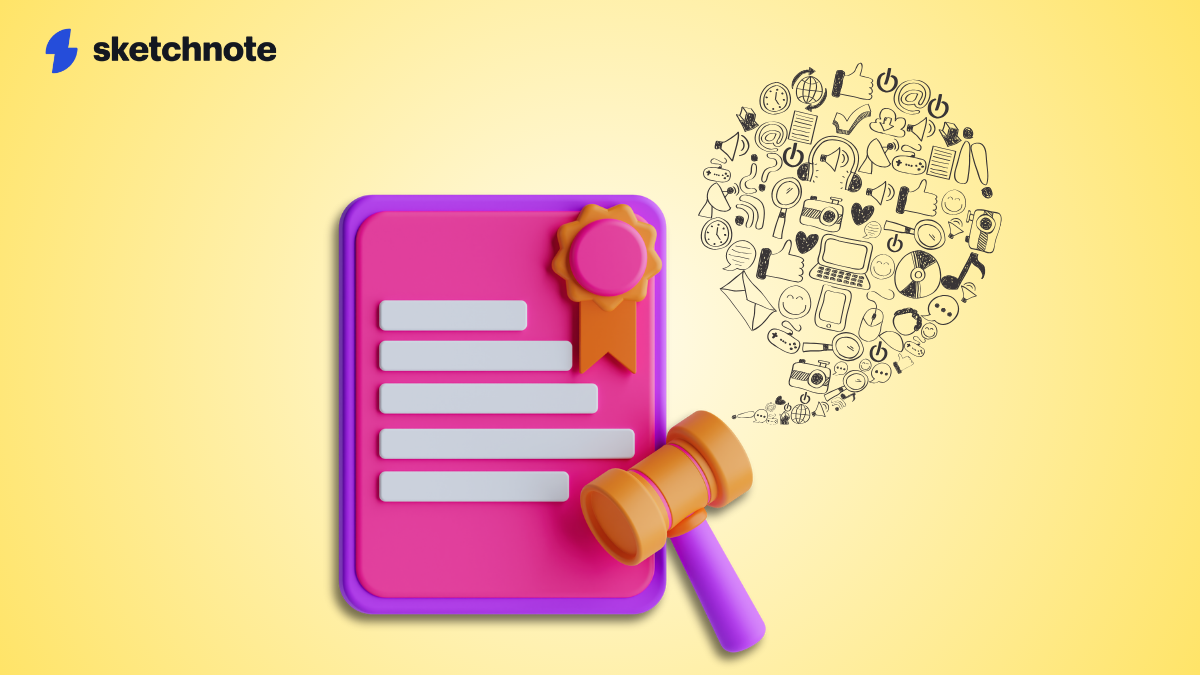
Legal Considerations in Social Media Management
Navigating the complexities of social media management requires not only strategic planning and analytics but also an understanding of the legal implications involved. As businesses engage across multiple platforms, addressing copyright issues, privacy regulations, and compliance with advertising standards becomes paramount. Failing to consider these factors can lead to potential legal repercussions, affecting your brand's reputation and financial standing.
Guidelines for Copyright and Content Rights
Managing your content rights on social media is key to mitigating legal risks. Ensure that you have permission to share any third-party material, whether it's images, videos, or music, to avoid copyright infringement. Verifying the ownership and licensing of content will help protect your business from unnecessary legal disputes.
Understanding Privacy Regulations
Privacy is another critical aspect of social media management that you must be aware of. The rise of data protection laws, such as the General Data Protection Regulation (GDPR) in Europe and the California Consumer Privacy Act (CCPA) in the United States, has necessitated transparency regarding user data collection and processing.
When utilizing social media schedulers, be mindful of how data is collected and used. Familiarize yourself with privacy policies and ensure compliance with relevant regulations to maintain the trust of your audience and avoid potential penalties.
Compliance with Advertising Standards
Advertising on social media is an effective way to reach your audience, but it's essential to follow advertising guidelines set by platforms and regulatory bodies. Ensure your promotional content is transparent and adheres to the advertising policies of each platform to avoid penalties or account suspensions.
By understanding and complying with legal considerations in social media management, you can protect your brand while building a positive reputation. Remaining vigilant about copyright, privacy, and advertising regulations will empower you to engage your audience effectively and responsibly.
Evaluating the cost versus value of social media schedulers is essential for effective decision-making. Understanding your unique business needs, exploring features, assessing ROI, and examining user feedback will guide you toward the right tool for your social media strategy. By considering all these factors, you can select a scheduler that not only meets your current requirements but also supports your growth and adapts to the evolving landscape of social media management.



